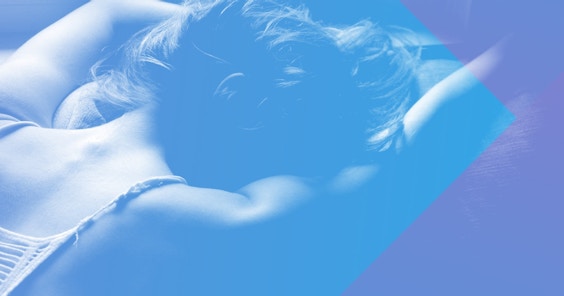
How To Quit Drinking
Last Updated: Fri, January 19, 2024Quitting drinking isn’t easy.
Unlike other addictions, alcohol is legal, socially acceptable, and deeply integrated into events, celebrations, and day-to-day activities. Alcohol is regularly served at celebrations (anniversaries, graduations, weddings); holidays (Christmas, Thanksgiving, Cinco de Mayo); meals (brunch, lunch, dinner); any late night event (watching the game, going bowling, seeing a movie). Airlines, comedy clubs, some coffee shops -- you don't notice how prevelant it is until you're in a position to stop. For the uninitiated, imagine if tomorrow you're suddenly gluten, dairy and soy intolerant. It limits where you can go.
But unlike a dietary restriction, quitting drinking makes you a social pariah. You don't want to draw attention to yourself as the only person not toasting the bride and groom. The bottom line is, alcohol is readily available and ingrained in our culture which means, it’s not a problem that can be cured by deleting your contacts, moving to a new city, and starting over; temptation will continue to lurk around every corner.
Which is why if you're going to quit drinking alcohol, here's a few tips to get you on the right path.
Admit You Have A Drinking Problem
This isn’t a pity party or an open invitation to beat yourself up, but admit you have a drinking problem. Has anyone ever told you something like, “I find four or five bobby pins on the ground every day,” and suddenly, you start to notice bobby pins on your walks and in parking lots? This is why you should admit you have a problem. By acknowledging your behavior as unhealthy, you’re more likely to unconsciously make a note of triggers and behaviors regarding your drinking. In short, you won't notice you have a problem unless you're looking for it and it is always going to be much harder for your friends and family to say "you seem to drink a lot" than it is for you.
Most people who have a drinking problem, don’t know they have a drinking problem. They’re not thinking about how many drinks they’ve had. Once you’ve established that you have a problem, you’ll start counting those shots or bottlecaps in your pocket. In short, you cannot fix a problem, if you don’t recognize there is one.
Consider Why You Should Quit Drinking
If you’ve already established you have a problem, then you can start to look at how that problem is affecting you. How has your relationships with your friends been? Your family? Your job? Assess these areas of your life critically because, being an alcoholic doesn’t necessarily mean you’re going home, breaking dishes and yelling at the kids. According to a recent study, one in eight Americans are alcoholics – that’s 12% of people in America! If this is truly the case, this problem is very widespread even if most alcoholics are (seemingly) functioning. Explore areas of your life that you’re unsatisfied with and determine if drinking is a contributing factor. For that matter, explore areas where you are satisfied and see if drinking is the reason or preventing an even better outcome.
If you’re struggling to see what impact drinking is having, then try to go for a period of time without it and see how you feel. Drinking disrupts rational thinking, interrupts sleep patterns, and may not cost a lot on a daily budget, but week over week, it adds up.
Retire Your Drinking Buddies
We all have a myriad of friends and friend groups. There are those that like hikes outdoors and those that would rather stay in and watch a movie. That said, many people drink socially. If you have a network of friends you call (or that call you) when you want to go out drinking, then they need to be reevaluated.
First and foremost, you should be upfront with everyone in your support system that you’re trying to get sober. Even if you choose not to share that publicly, you should with your network because they’ll have a better understanding of your decisions. For example, if one of your friendships is founded on drinking, and you need to make a clean break, then they at least have an explanation. Plus, even if you never speak to that person again, there’s always a chance that your choice and explanation had an affect on them to get sober.
While cutting people out may seem extreme, the reality is, when you’re trying to get sober, you must become your top priority. If a relationship is not founded on drinking, it will survive. Of course, if a family member is unsupportive, then getting some distance is the best thing you could do.
Limiting your social circle to friends and family who don’t drink and are supportive of your choice will make it much easier to for you to quit drinking.
Expect Withdrawal Symptoms
Withdrawal symptoms from alcohol can vary in duration and severity. Usually symptoms begin 24 hours since your last drink, but can last up to seven days. You may experience insomnia, tremors, and fever-like symptoms. One symptom, you’re guaranteed to experience is mood swings.
Once you’ve quit drinking alcohol, you’ll notice yourself being quick to react; mood swings in positive and negative directions. Part of the reason is because, alcohol is a depressant which acts upon the nerve cells in the brain. Nerve cells aid in communication of a multitude of factors in the brain, not the least of which are emotions and this why many people say drinking helps them to relax: it slows down their brain function. As a perfect storm however, alcohol also increases the amount of dopamine released, which is directly tied to your reward system and feeling good. What you’re left with is a brain that’s functioning at half-capacity, but thinks it’s functioning optimally.
This is also why, the more you drink, the more likely you are to feel depressed rather than jubilant as your brain continues to slow down and less dopamine is released. In short, expect alcohol withdrawal symptoms regardless of how long you’ve been drinking.
Handle Your Cravings
Regardless of whether you’re suffering an addiction or a dependency, if you’ve had a relationship with alcohol, there’s a greater likelihood that you’ll experience cravings. Cravings are recalled memories of the substance; basically, in the same way a song or a food can trigger an emotional response due to a latent memory, a drug can do the same.
What’s worse is the emotional response is usually tied to our reward system as well, so not only does your body remember using the drug, but it remembers the immediate gratification that came with it. This is what results in cravings.
Cravings fade with time, but if you’re trying to give up alcohol, it’s important to recognize triggers that may elicit an emotional response to make you want to drink. Track your triggers, and find ways to avoid them. Some ways of managing triggers are:
-
Leave
If the trigger is something you can readily walk away from, do so. If it’s a person or place that isn’t holding you against your will, then leave to avoid enhancing the craving.
-
Talk It Out
If you have a friend or family member you can talk to, then tell them what you’re feeling, so they can help you through it. Trust them to be the voice of reason.
-
Remind Yourself Why You Stopped Drinking
Drinking rewires the brain to concentrate more energies to the immediate rewards drugs offer. Since a craving is a recalled memory, your body is going to want the immediate reward. What usually gets people to stop is thinking about long-term goals instead of short term highs. As a result, when you’re experiencing a craving, remind yourself why you stopped drinking as this will mentally train your brain not to look at the immediate rewards, but start seeing the long term goals.
And speaking of long term...
Prepare For Lifelong Commitment One Day At A Time
This process to get sober and quit drinking for good will feel like a rigorous workout regiment, and that's why you need to take it one day at a time. Because the "workout" will fluctuate daily. Some days, you'll be able to stay sober without any issues. Others, you'll be astonished you ever made it this far. Every day will be different with strange and unusual challenges. If you look down the path too far, you may get disheartened or fearful. That's why you focus on the 24 hours in front of you. Reward yourself daily, so you can feed that short-term rewards part of your mind while secretly you've just hit a new long-term milestone.
Quitting drinking is hard, but it’s not impossible. Much of the effort involve is self-discipline and retraining the brain to think long-term instead of impulsively. If you want to stop drinking alcohol, focus on (and expect) these elements so you’re better prepared for this lifelong battle.
I Am Sober is a free app that helps you get some control back in your life.




